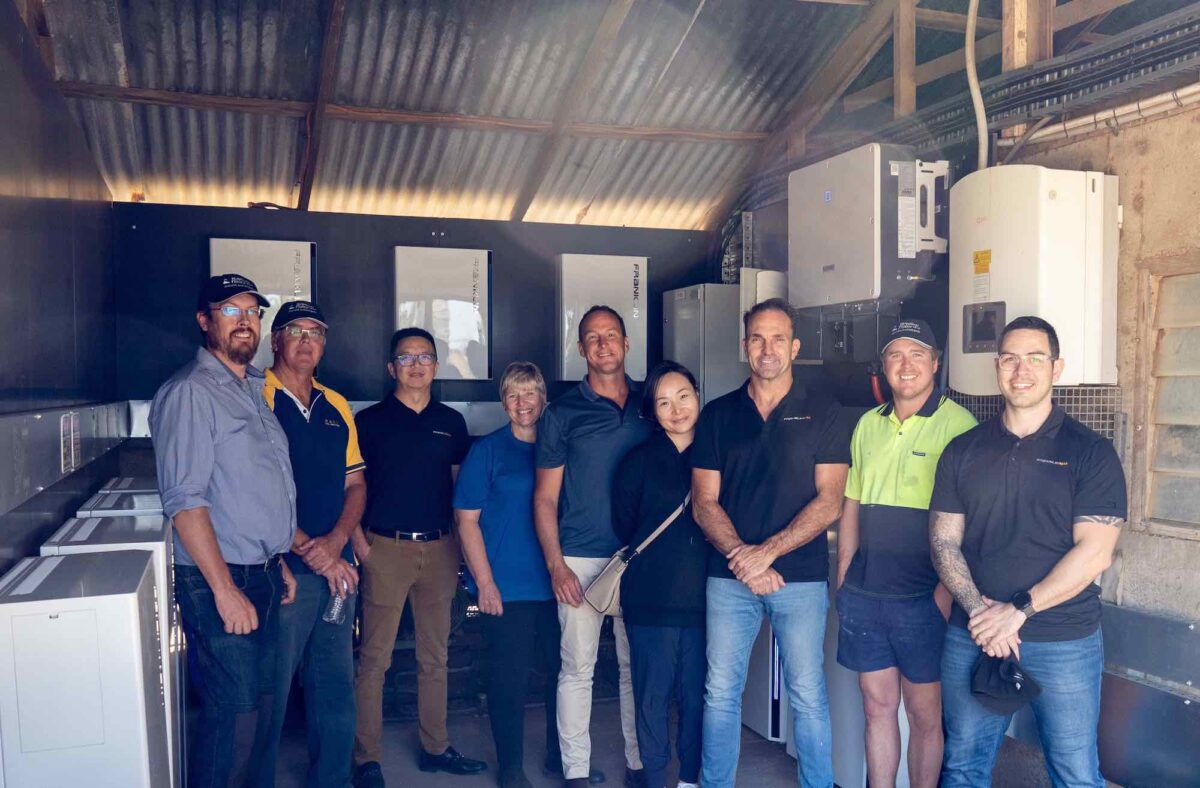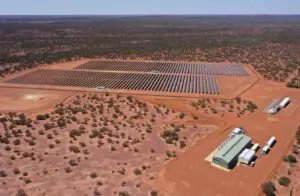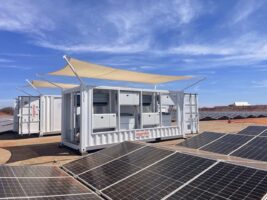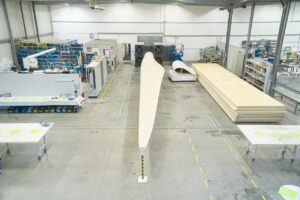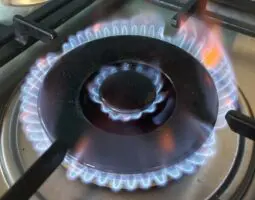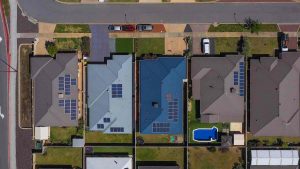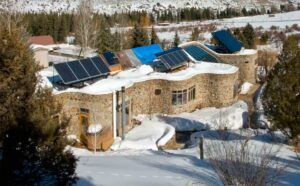A dairy farm in regional Victoria has just launched 100kW solar system and six 13.8kW/h batteries to milk cows more cheaply in the early mornings and evenings.
The owners of M&J O’Connor Farming are hoping that this will lower the cost of their energy, especially as electricity prices continue to climb.
“Our power bills just kept going up and up and up,” one of the owners, Janet O’Connor, told RenewEconomy.
“We’re doing a new dairy, so we thought now’s the right time to do it.”
The batteries are AC coupled 13.8 kw/h batteries from US company Franklin. Eventually there will be 12 installed, with six already in, and six added next year.
“They milk their cows just before the sun comes up and they milk the cows just after the sun goes down,” said Matt Harold, director of Enviro Projects, who installed the system.
“So, a large portion of their bill was demand [pricing] and obviously that’s when all the pressure is on the grid as well.”
This meant that even when solar was installed without batteries, it wasn’t useful for when the cows needed to be milked – before and after the sun rises and sets.
“Many dairy companies have been burned by solar companies,” said Harold.
“They’ve come in and putting these big solar systems in and just not have any effect whatsoever.”
By comparison, the large battery system along with the solar should allow better management of their energy costs when they need it most.
Being near Warrnambool, they’re unlikely to have sun the entire year to power the solar, but Harold is also looking into charging the batteries during off-peak if there’s no sun.
“Their winters are terrible,” he told RenewEconomy.
“So there is still going to be a portion of load where the solar is just not going to fully charge the batteries, especially in the middle of winter where it’s pouring down with rain.
“We’re also going to experiment with ideas of do we charge the batteries at two o’clock in the morning when the cost is cheap to offset the demand charges.”
However, even with the off season, they are hoping the system will have paid itself off within 5-7 years.
“It’s an opportunity that was too good to miss,” she told RenewEconomy.
“We’re hoping that it’s going to work really well and that our power bill is going to come down and we’re not going to be so reliant on power in the future.”

